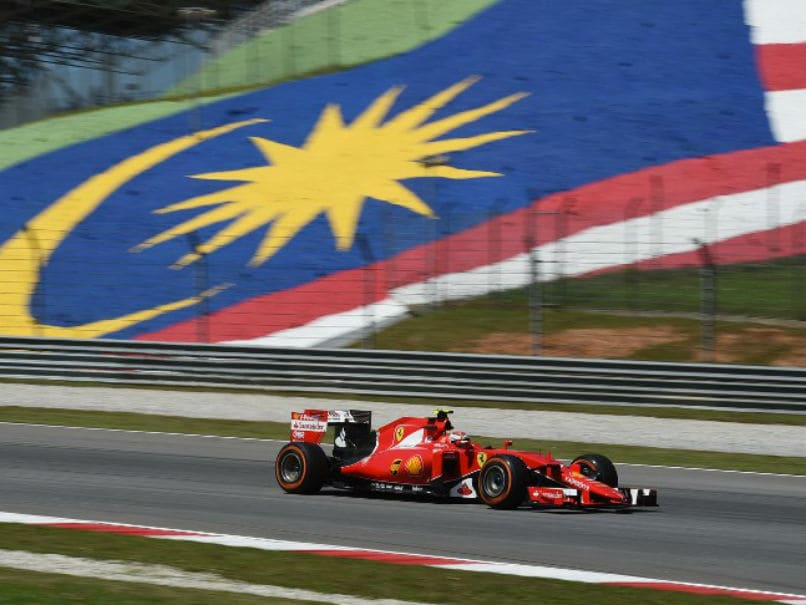Malaysia To Scrap Formula One Race After 2017, Says Prime Minister
Malaysian officials have said the Sepang circuit, which can accommodate 120,000 fans, drew just 45,000 to the 2016 Grand Prix, and TV ratings were also poor.
- Agence France-Presse
- Updated: April 07, 2017 01:59 pm IST

Highlights
-
This year's Malaysian Grand Prix is set to be the country's last
-
PM Najib Razak announced, citing rising costs and falling ticket sales
-
Malaysia spends USD 67.6 million each year to host the F1 race
This year's Malaysian Grand Prix is set to be the country's last, Prime Minister Najib Razak said on Friday, citing rising costs and falling ticket sales. The Malaysian race, whose future has been in doubt for several years, will disappear from Formula One's 2018 calendar -- a year earlier than initially planned -- while France and Germany return for a 21-race season. "The Cabinet has agreed to end the Formula One Grand Prix effective 2018 in view of the low returns compared to the cost of hosting the race," Najib said in a statement.
Officials said last year that Malaysia would cease to host Formula One from 2019, waving the checkered flag on a race which began in 1999.
Razlan Razali, chief executive of Malaysia's Sepang International Circuit (SIC) where the Grand Prix is held, said the termination was "mutually agreed" by race organisers Formula One Management and SIC.
"Since I joined SIC nine years ago, we had tried to make it work for the economy and ensure all stakeholders like hotels and airlines benefit," Razlan said.
"But unfortunately in the last few years we had seen a dramatic decline in terms of television audiences and spectators."
Malaysia spends 300 million ringgit (USD 67.6 million) each year to host the race but was not getting any return on its investment, according to Tourism and Culture Minister Nazri Aziz.
The race has faced intensifying competition in the region, particularly from the night Grand Prix in neighbouring Singapore, just as energy-exporting Malaysia has seen its government revenues sapped by weak world oil prices and slowing economic growth.
Formula One races often run at a loss but they are attractive to many cities because of their prestige and exposure to global audiences.
Najib noted in his statement that in 1999 only 16 countries hosted Formula One races, including two in Asia. This has now grown 21 countries worldwide, including six in Asia.
Malaysian officials have said the Sepang circuit, which can accommodate 120,000 fans, drew just 45,000 to the 2016 Grand Prix, and TV ratings were also poor.
"It's always sad to say goodbye to a member of the Formula One family," said Sean Bratches, managing director of the sport's commercial operations.
"Over nearly two decades, the Malaysian Formula One fans have proven themselves to be some of the sport's most passionate supporters," he added.
"I'd like to take this opportunity to thank the Sepang International Circuit for their hospitality and professionalism over the years, and their ongoing commitment to motor sport."